Absolutely the best attorney for getting your VA benefits. After 7 years of denial, I found Brendan Garcia of VetLaw, He reviewed my case, set up a plan , scheduled my video hearing in front of a Veteran law judge, flew out to Phoenix to be there with me during the hearing. Hired a doctor to help draft a report to help my case. When all the smoked cleared, I’m now collecting max disability monthly, back pay beyond my wildest dreams. Brendan Garcia never stopped. He is an expert in Veterans law. Best decision of my life was to have him on my side. Bar none, Brendan is a terrific VA benefits attorney!
Vet Law represents claimants before the Court of Appeals for Veterans Claims. This Court is not part of the Department of Veterans Affairs. Rather, the Court of Appeals for Veterans Claims is a federal court that hears a veteran’s appeal of the Board of Veterans’ Appeals decision.
The Board’s decision represents the VA’s final action in the claim. However, the CAVC court has the jurisdiction to review—and, if warranted—vacate or reverse the VA’s decision.
Read More about Understanding BVA and CAVC ClaimsBelow, you’ll find case summaries highlighting our strategies and outcomes in cases before the CAVC court.
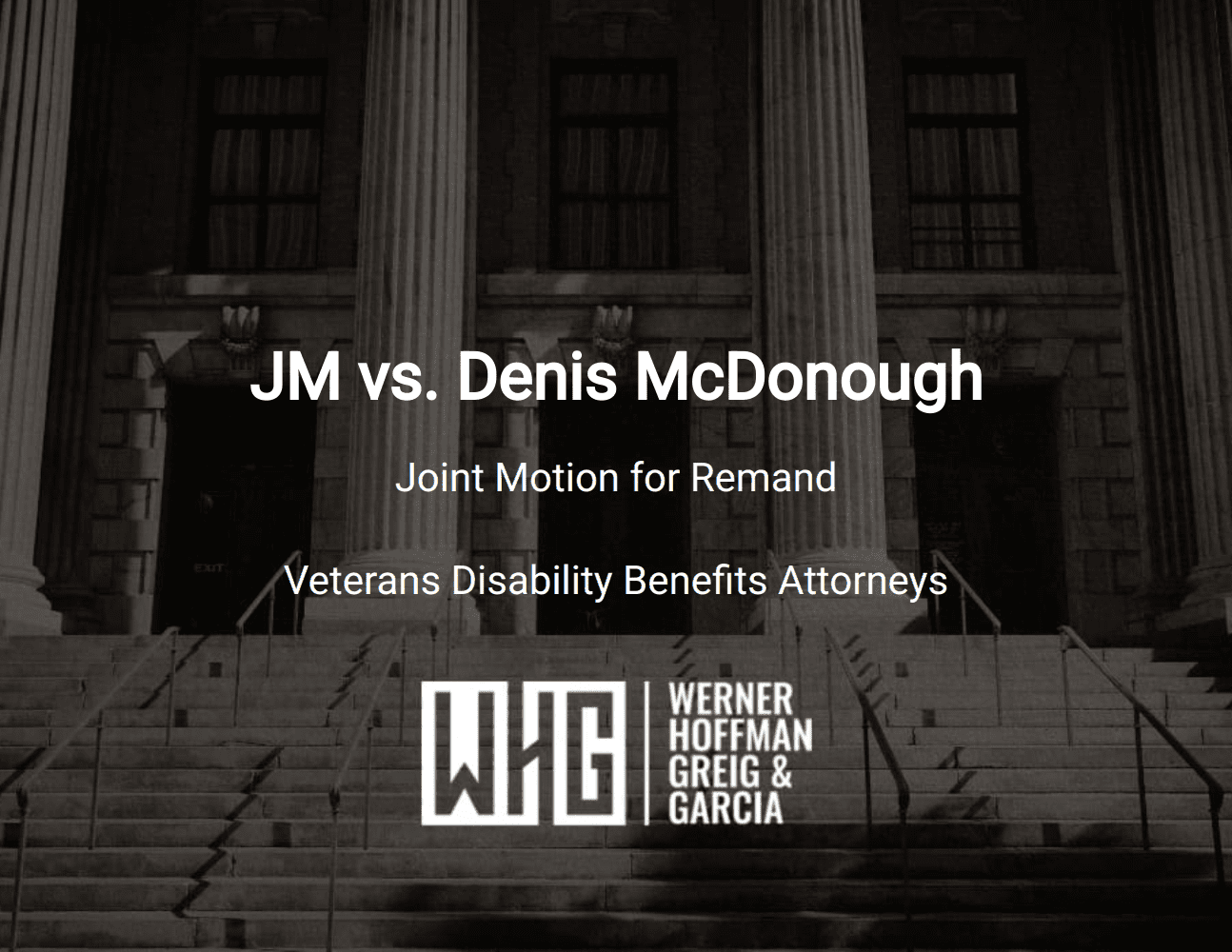
JM vs. Denis McDonough
August 14, 2024
Our firm successfully secured a remand for our client after the U.S. Court of Appeals for Veterans Claims vacated an August 21, 2023, decision by the Board of Veterans’ Appeals. The Board denied our client entitlement to a total disability rating based on individual unemployability (TDIU). Our CAVC attorneys convinced VA and its attorneys that […]
Read More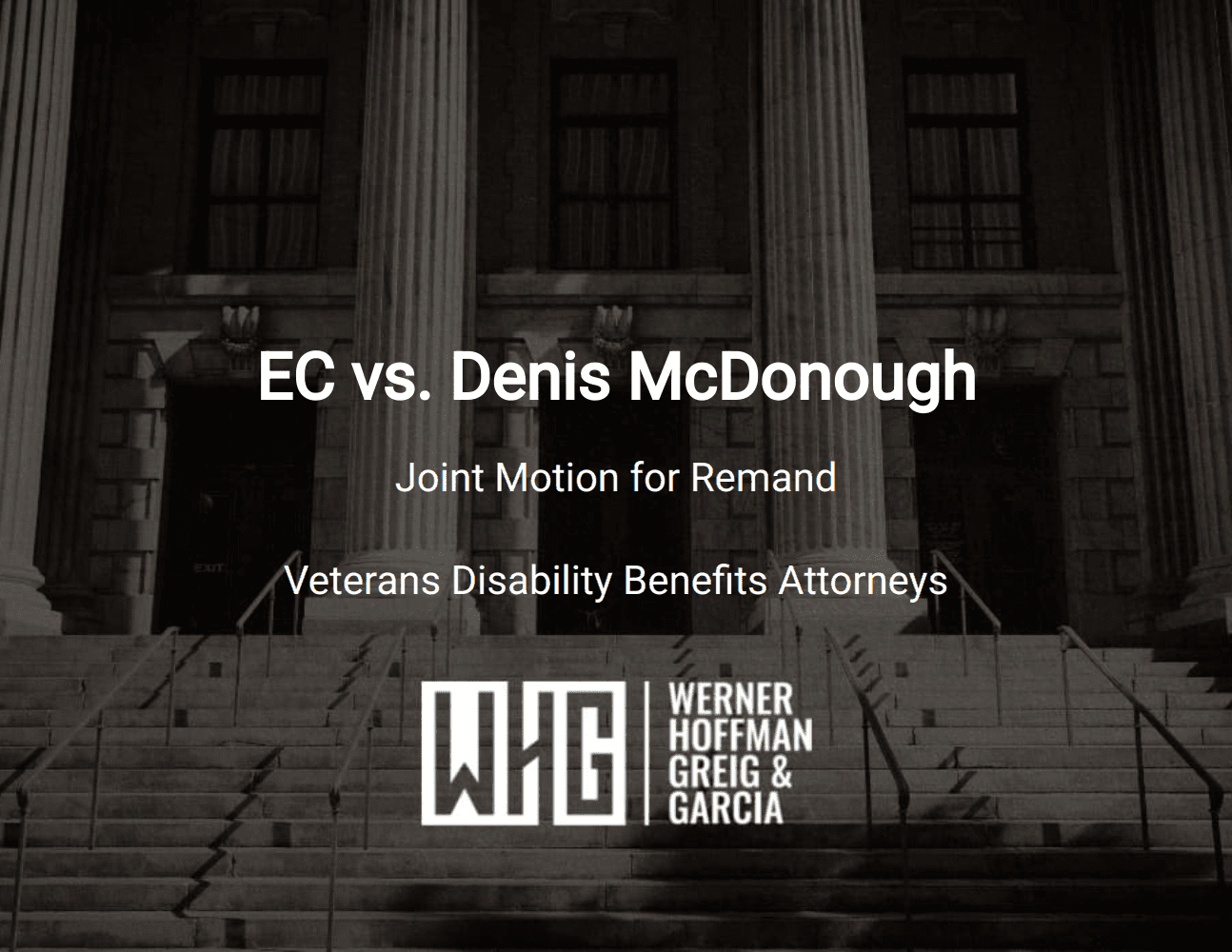
EC vs. Denis McDonough
August 2, 2024
WHG successfully secured a remand from the U.S. Court of Appeals for Veterans Claims in a case involving entitlement to a total disability rating based on individual unemployability (TDIU). The Court vacated the Board of Veterans’ Appeals’ July 8, 2023, decision and ordered the Board to readjudicate the case. The decision came after VA and […]
Read More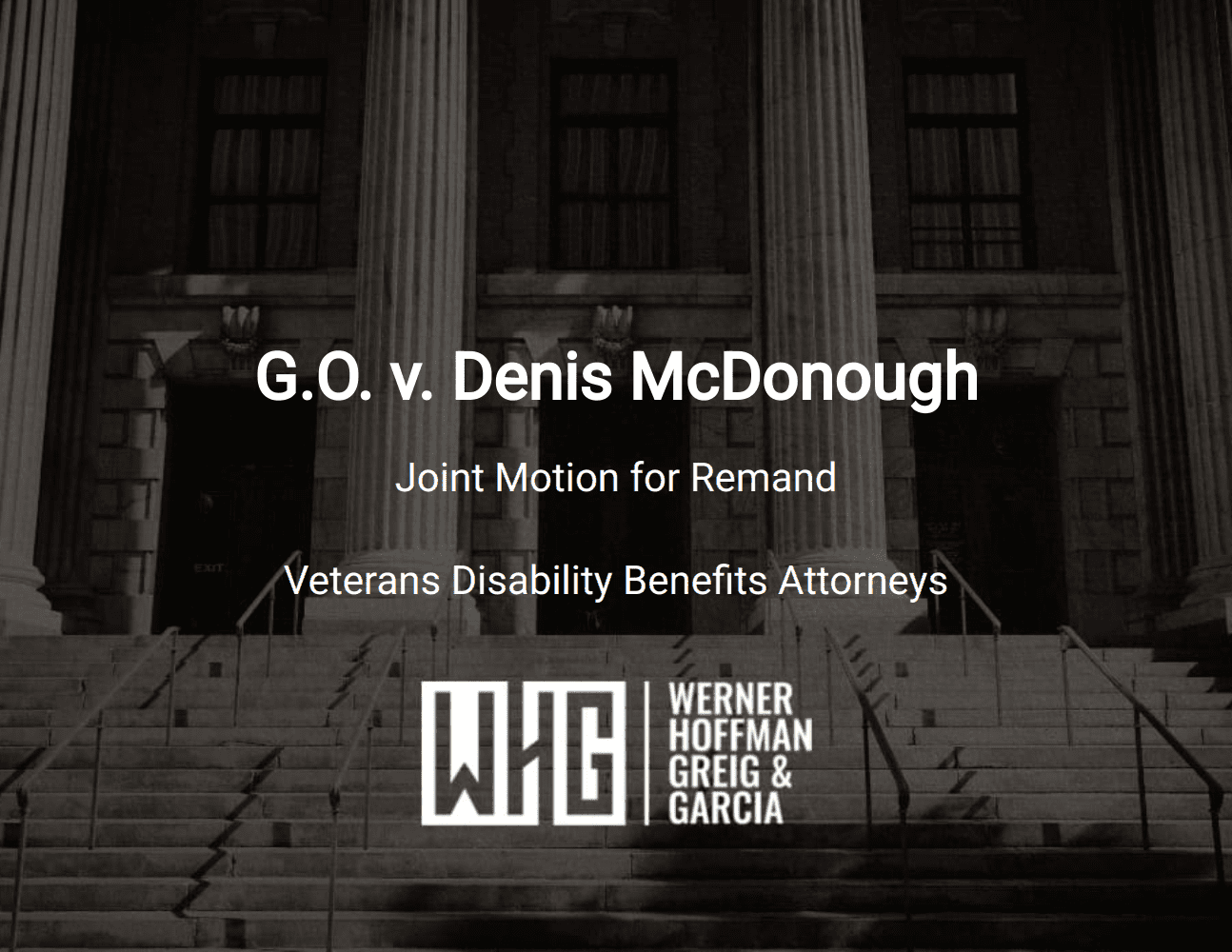
G.O. v. Denis McDonough
July 30, 2024
WHG secured a remand from the U.S. Court of Appeals for Veterans Claims in a case involving entitlement to service connection for generalized anxiety with panic attacks. The Court vacated the Board of Veterans’ Appeals’ November 1, 2022, decision, following our argument that the Board failed to provide an adequate statement of reasons or bases […]
Read More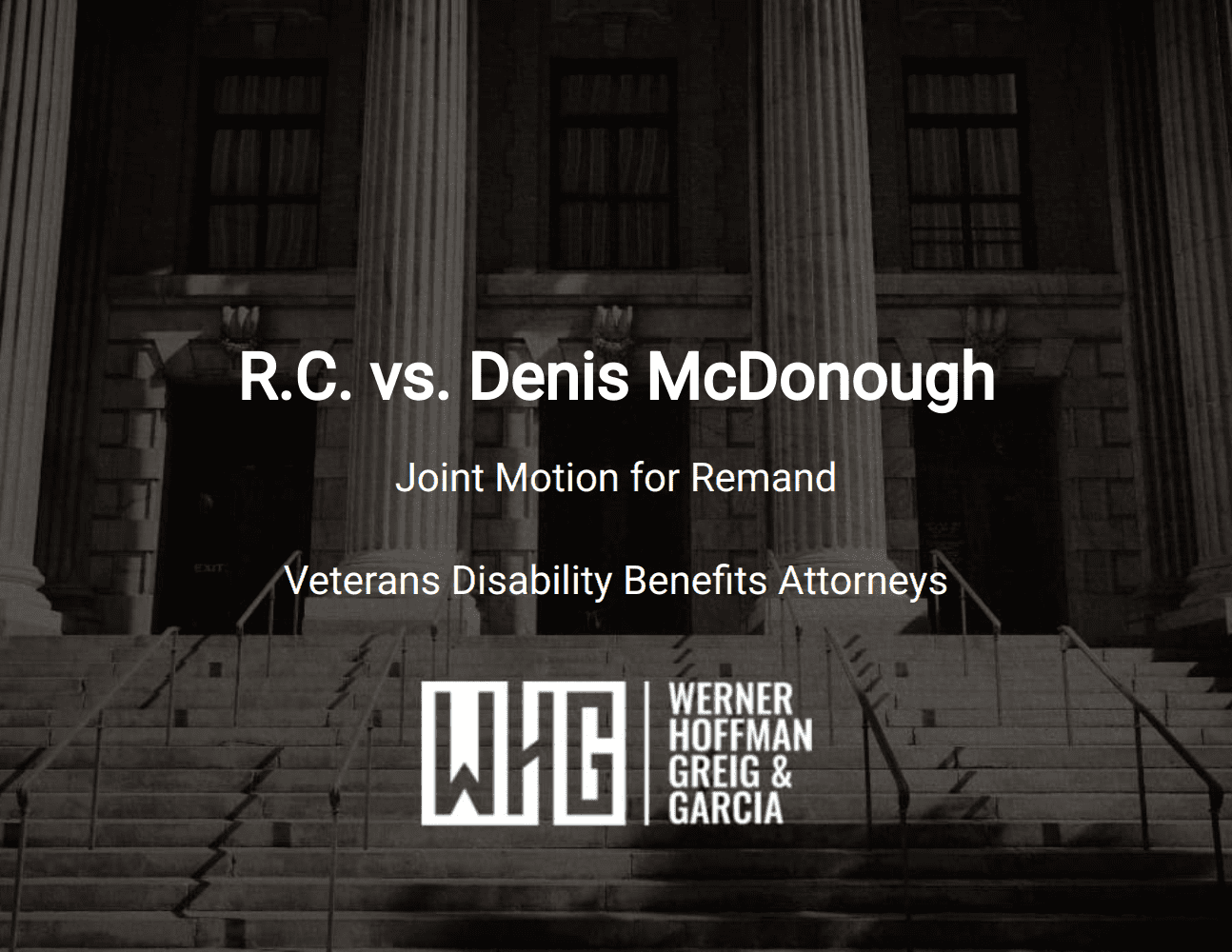
R.C. vs. Denis McDonough
July 25, 2024
VA and its attorneys agreed the Board erred when it denied our client a higher rating for his service-connected mental health condition. This resulted in a joint motion which avoided the lengthy briefing process and sent the issue back to the Board as quickly as possible. Under the law, specifically the precedent set in Bankhead […]
Read More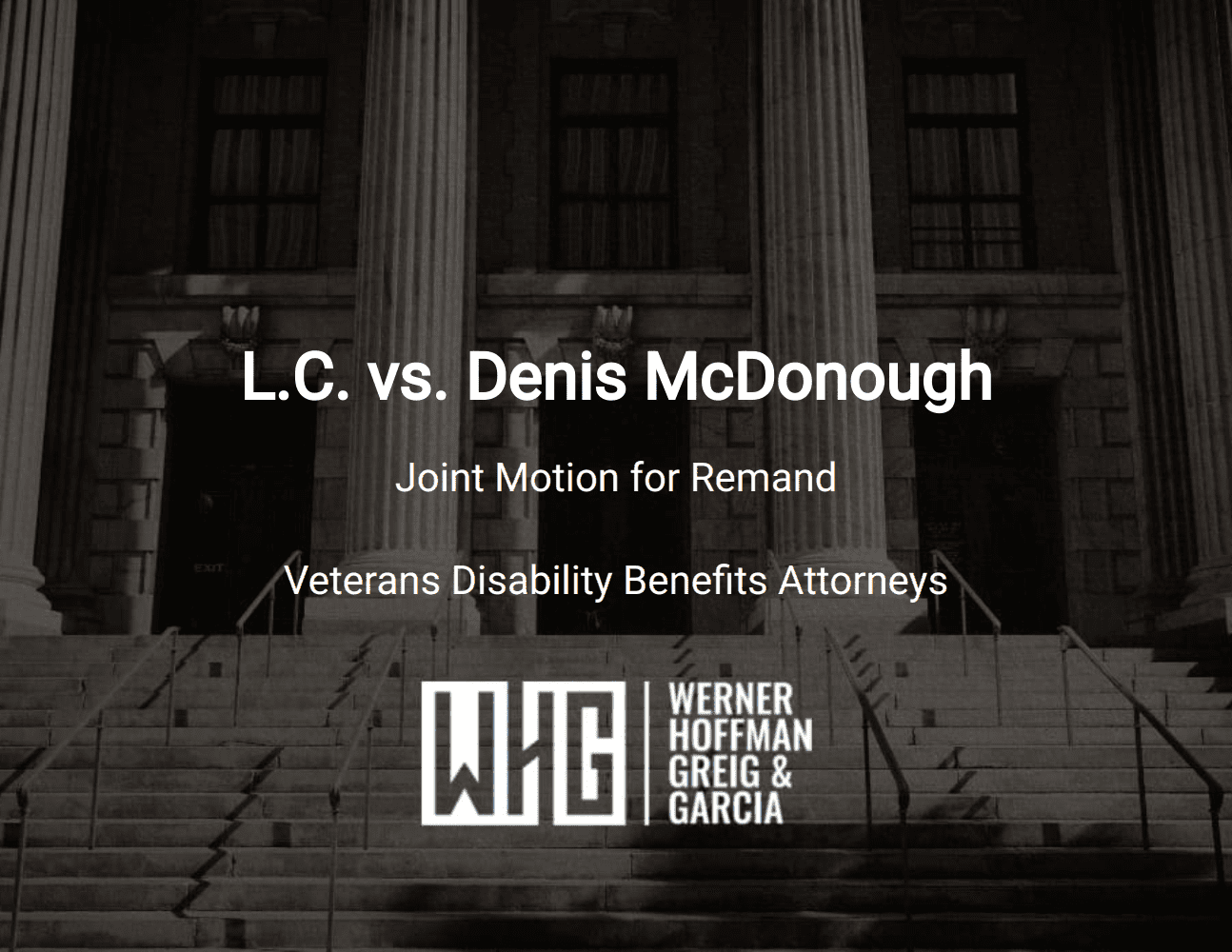
L.C. vs. Denis McDonough
July 15, 2024
We are pleased to announce a significant victory for our client at the Court of Appeals for Veterans Claims. In a joint motion that avoided a lengthy briefing process, VA and its attorneys agreed that the Board of Veterans’ Appeals failed to provide adequate reasons for denying service connection for our client’s leukemia on a […]
Read More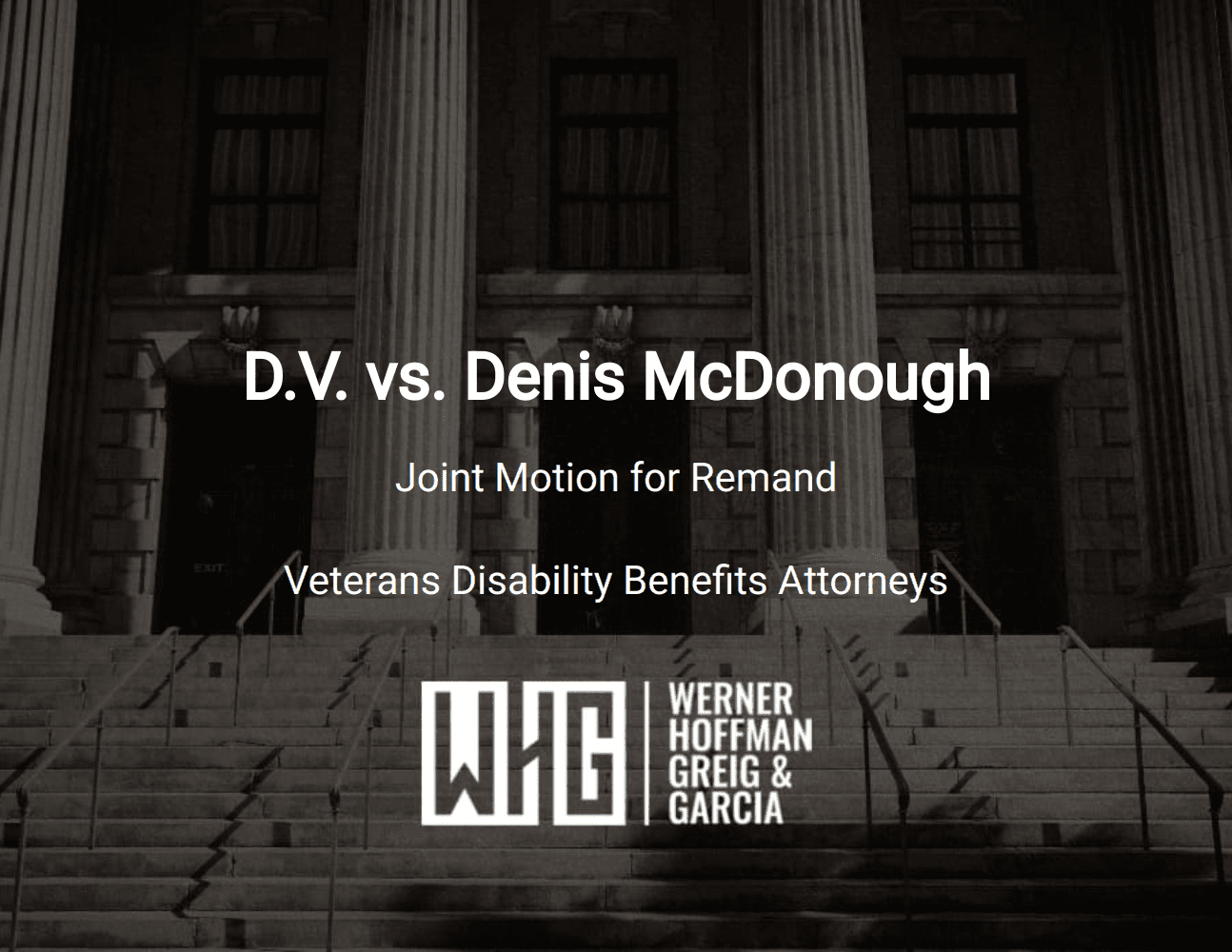
D.V. vs. Denis McDonough
July 10, 2024
WHG is thrilled to announce a significant victory for our client at the Court of Appeals for Veterans Claims. VA agreed that the Board of Veterans’ Appeals failed to address key favorable evidence regarding our client’s coronary artery disease (CAD) symptoms before May 24, 2022. Our client, a dedicated veteran, has battled CAD since April […]
Read MoreQuestions about CAVC
What is the Court of Appeals for Veterans Claims?
The Court, commonly referred to by the acronym CAVC, was established by Congress in 1988 to review VA’s decisions on veterans’ disability claims. Claimants can appeal decisions by the Board of Veterans’ Appeals to the Court to correct any errors in the Board’s decision
How long do I have to file an appeal?
Claimants have 120 days from the date of the Board of Veterans’ Appeals decision to notice an appeal to the Court.
What does it cost?
The exact worth of a personal injury claim can vary based on a number of factors. Some key factors include the extent of the injuries, the costs involved, and the liability of the involved parties. Ultimately, the potential compensation is unique to your situation. Speak with our team to understand the particulars
What options do I have after receiving a decision from the Board of Veterans’ Appeals?
For claims still in the legacy system, an appeal to CAVC is a claimant’s only option to correct an erroneous Board decision. This is generally the rule for Regional Office decisions that pre-date February 19, 2019, for which a VA Form 9 was filed to appeal.
Under the Appeals Modernization Act (AMA), claimants still have the option to appeal to CAVC but can also file a supplemental claim within one year of the Board’s decision. Claimants are allowed to do both at the same time (appeal to CAVC and file a supplemental claim). The modernized system generally applies to Regional Office decisions that post-date February 19, 2019, or where the claimant has opted into the new system.
Claimants must submit new and relevant evidence with a supplemental claim.
Do I have to have an attorney to appeal to CAVC?
An attorney isn’t required; claimants can file their own appeal and represent themselves before the Court. But your best chance of winning your appeal is through someone well-versed in veterans law who can spot any errors made by the Board. Cases at CAVC are adversarial, meaning the claimant and VA are on opposite sides arguing for and against. In every appeal the VA will be represented by an attorney who will argue that the Board made no error and that VA’s decision should be affirmed.
What does a CAVC “win” look like?
When the Court finds the Board erred in its decision, the Court will most often vacate the Board’s decision and remand the claim back to the Board to correct its error and issue a new decision. Occasionally, where the Board’s error is so egregious, the Court will reverse the Board’s finding. Even in this situation, the Court will remand the claim back to the Board for it to issue a new decision.
What’s important to understand is that the Court does not grant or deny claims. Rather, it sits more like a referee to ensure the VA complies with the law and properly applies the facts of each claim to the controlling rules and regulations.
How long does a CAVC appeal take?
On average anywhere from six to eight months to one to two years. For appeals where the claimant is represented by an attorney, the Court provides a process where the two parties can agree the Board erred. This occurs before the parties begin the formal briefing process and, if the Secretary concedes error, can result in a remand within six to eight months of filing the appeal. For claimants represented by attorneys this is the most common result.
For cases that undergo formal briefing that must be reviewed by one of the Court’s judges, it can take roughly one to two years after filing the appeal to get a decision.
What are my options if CAVC affirms the Board’s decision?
Claimants can appeal CAVC decisions to the Court of Appeals for the Federal Circuit and, if necessary, to the U.S. Supreme Court.
For claims governed by the modernized appeals system, claimants can also file a supplemental claim within one year of the Court’s decision. However, the supplemental claim must be accompanied by new and relevant evidence to trigger VA’s obligation to adjudicate the claim.










